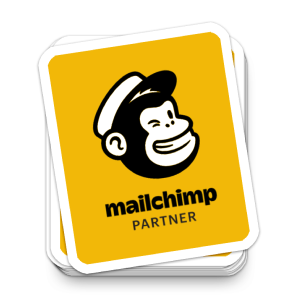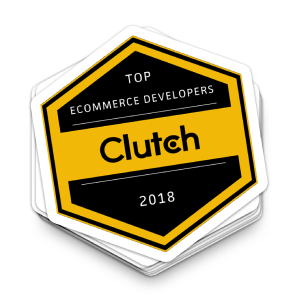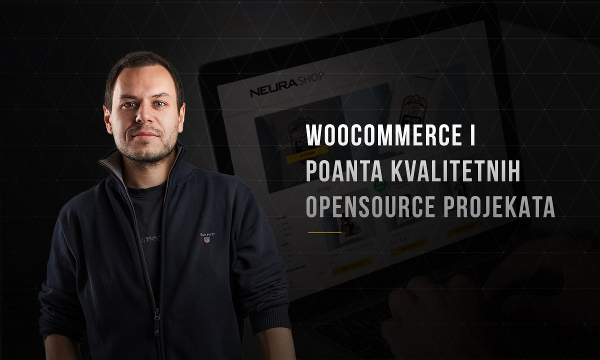WooCommerce or why Croatian Companies Should Accept Open Platforms in 2016
TL; DR – Let’s call a spade a spade. The meaning of ‘open-source’ projects is the joint and distributed development of a certain author’s work, and not a superficial opportunity to capture a larger market share. We`ll explore the concepts that define a quality and successful ‘open source’ project such as Linux or WooCommerce, and separate them from orchestrated attempts to open up corporate technologies such as the ASP.NET framework or the Swift programming language.
Just three months ago, Microsoft announced that it is using Linux in its data centers. “It’s a marketing ploy!” exclaimed the old IT guy, crossing himself and recalling the times of the old left and right divisions, Macs and PCs, Windows and Linux.
A year ago, that same Microsoft “opened the code” for its ASP.NET, a corporate development framework used predominantly for business applications and, of course, MySpace. And then journalists and Facebook revolutionaries called for the visionary twists and turns of the mighty Satya Nadella. Microsoft had a new open guideline, Microsoft had an attitude!
The illusion of democracy
But in the hipster world, attitudes are soft and foggy creatures able to pivot into the strangest technological corners. In the hipster world, the trend is more important than the attitude, and one can easily “sell” NoSQL to the boss, since “we will be able to scale towards millions of users tomorrow!”
Our great Apple provided us with a similar event about three weeks ago with the announcement that it is “opening” Swift to the community and that this programming language can now be used for development on other platforms. If you scratch the surface, what are these posts really about? Does this Apple news mean anything even to the above-average iOS developer? On Apple’s official website there is a proud announcement…
Now anyone can download the code and in-development builds to see what the team is up to. More advanced developers interested in contributing to the project can file bugs, participate in the community, and contribute their own fixes and enhancements to make Swift even better. For production App Store development you should always use the stable releases of Swift included in Xcode, and this remains a requirement for app submission.
As you can see, requirements of using Xcode, signing up for iTunes Connect, and distributing your product via the Apple ecosystem are quite obvious. And that’s okay! From the Apple`s side. Globally, with these actions of yours you are actually doing business instead of “them” from Cupertino! (To me personally, the above text seems like a description of the Junior Developer job in the Swift team).
If you write on Microsoft ASP.NET, the reality is that in production you have to use-pay for Windows and IIS installed on Azure or some other data center, so although Swift and ASP.NET are wonderful technologies, they do not and will not embody the core principles of open source. The goal of such corporate projects is to keep developers in a monetized ecosystem, not to dance outside of it. In general, their intention is to create the illusion of democracy, and that reveals the central theme of the article.
Forging WooCommerce from fierce internet debates
In 2011, WooCommerce was forged following a fierce digital debate. A full-blooded WordPress plugin that turns your website into a powerful web store and eCommerce platform. In online archives, you can find Interesting facts about its origin. There was talk about hoaxes, business takeovers, rejections… Basically, “google it” if you are interested, because there is a lot of reading on this, once, hot topic.
Technologically, WooCommerce originated as a fork of the Jigoshop, then a popular and of course open source, WordPress plugin project. WordPress itself also emerged as a contractual branch of B2 CMS in a somewhat more civilized environment as Matt Mullenweg and Mike Little kindly took over the program code from Michel Valdrighi, the current developer and contributor to the WordPress project.
Numbers don’t lie, but how did they come to be?
When you compare the corporate artificial story with Microsoft/Apple of the beginning and the real-life Santa Barbara from WooCommerce, it becomes clearer what an open source project should look like and how it should be managed. Objective numbers visualize their story because WordPress currently holds 50% of the market for all web portals and more serious web applications.
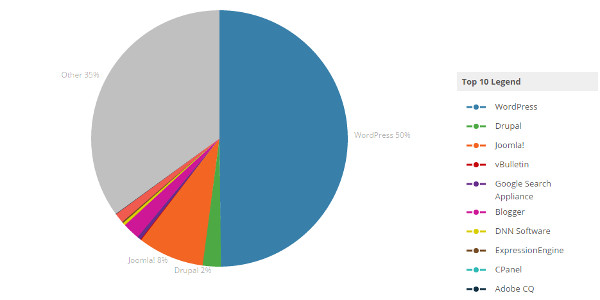
WooCommerce, on the other hand, holds a third of the market for all eCommerce implementations, creating an impressive ecosystem for digital channels selling.
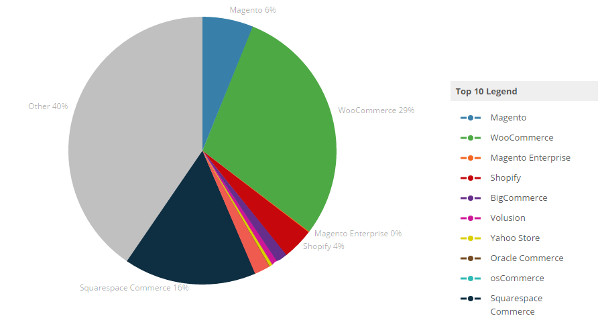
The rise to those numbers was layered and certainly didn’t come overnight. Namely, WooCommerce has one of the most widespread ecosystems in the digital world, and extensions and upgrades can be freely developed, distributed and sold on to at least a dozen platforms:
- WordPress.Org
- CodeCanyon (Premium)
- Woothemes (Premium)
- BitBucket
- GitHub…
In addition, various localizations, documentation, and visual themes are also available for free realization and distribution, and such productions are largely based on the instructions and guidelines of other community members, but without strict rules.
Proponents of corporate open source could say that Swift achieved relative success in a very short time. More than 10,000 reported possible commits in the first 24 hours of publication and more than 400 pull requests are really not small numbers. But the main guiding thought is – who is it for? Apple or the market?!

If we further analyze all similar and successful open source projects, we will detect 4 main features that they must have in order to qualify as marketable, open and meaningful.
1. Consensus, not authority
Open source is better when it is harmonized, not dictated. That way, the knowledge and quality of several contributors (developers) is built into one long-term project. Although such a process is more inconvenient than simple direct management, in the long run it leads to a market “stronger code”, which accumulates a great deal of experience.
2. Decentralization above centralization
Decentralization is the Sancho Panza of consensus. It enables the tactics and strategy of project development to remain layered, deep and based on the knowledge of several developers. Decentralization also enables a multi-perspective view and attention to market details invisible from the hidden corners of dark centralization.
3. Build a market, not a single company
Along with decentralization, one of the main features and points of real open source projects is that they serve the market rather than just a single company. Linux, Apache, and WordPress have democratized and strengthened online publishing in the broadest sense. WooCommerce does the same for eCommerce and web sales through digital channels. The breadth of market intervention is crucial here. Namely, WooCommerce can be implemented by small retailers with just a few items, but it can also be implemented by large players with millions of users who in turn require a fully customized approach to the development of their digital business. Although the latter will require the help of external experts and proven developers, they are a small army, and this is what brings us to the last point…
4. Independent and portable
Open source loves to grow, evolve, and transcend boundaries. The more open it is, the greater the chance that you can find a more qualified programmer, implementer or consultant for your business needs. The opposite side of this medal, the so-called vendor lock-in, experienced by all entities that have based their business on systems that maintain “irreplaceability”. The Croatian market and the local “lambing” ways of doing business were fertile soil for such integrators. Indeed, there have recently been a number of institutional projects that prove that the government has come to its senses and realized the benefits of the OpenSource community.
The mentioned jumping out of its own framework is, in the end, the biggest point because the software is really prone to complete opening towards community, where corporations and state apparatuses can take a lot from the concepts described.
These traditionally closed systems should move away from classic open source marketing intrigues and embark on the paths of the WordPress, Android or Linux community. If we use the right tools in the right way, fog and tricks turn into useful projects that benefit the whole market, not just a handful of people.

